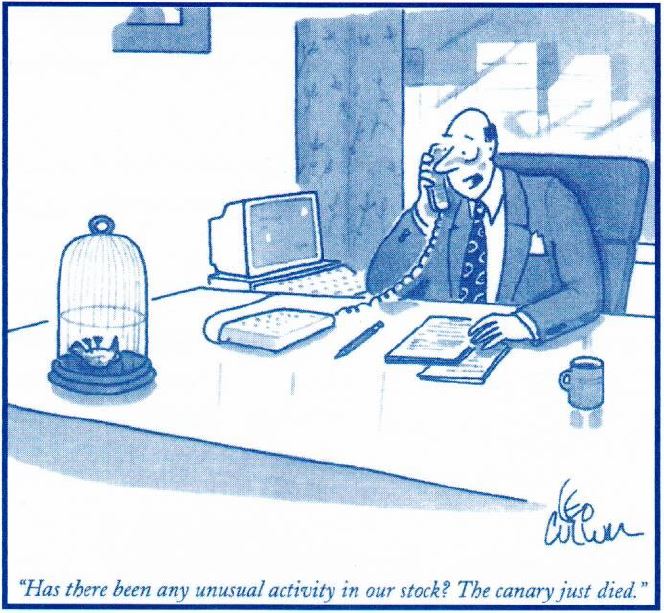 Spectrum Asset Management continues to honor the adage of “the return of one’s capital is more important than the return on one’s capital.”
Spectrum Asset Management continues to honor the adage of “the return of one’s capital is more important than the return on one’s capital.”
Protecting capital has been paramount because deflation, economic disappointments and misguided government policies have been key challenges for companies, their bonds and their stocks. Consistent with the above, portfolio strategy continues to be defensively driven. Bond positions continue to be adjusted; and equities that underperform the market indexes have been sold. With the exception of the Fed, the major global central banks are printing money and shoving interest rates to negative levels. These actions create liquidity that tends to buoy bond and stock prices.
Concurrently, the sales and profits of corporations are receding and making their bonds and stocks unattractive. Time is needed to resolve the stress between increased liquidity and failing economic indicators. Long-term interest rates could go higher and bond prices lower if foreign holders of U.S. treasury bonds decide to sell. Bonds in client portfolios are liquid, of high quality and shortened maturities. The S&P earnings are far worse than advertised. Many corporate managements promoted and reported pro-forma earnings rather than the usual GAAP (Generally Accepted Accounting Principles) numbers. Earnings reported in 2015 were basically flat while GAAP earnings declined by 12.7%.
A sustained market rally requires a turnaround in the earnings decline. The Leading Economic Indicators (LEI) in Canada, the U.S. and the U.K. point to cooling growth, which suggests an ongoing moderate expansion for the globe. The world’s economy is in a soft patch rather than a sustained economic slump.
The current companies in client portfolios have pricing power, pristine balance sheets, high returns on capital and rising dividends.
Mutual Funds and Exchange Traded Funds (ETF) currently held in client accounts or expected to be purchased have bonds and stocks that are similar to the high standards of the portfolios of individual bonds and stocks.
Declining markets tend to experience a rotation of economic sectors and industries. Potential stocks of companies to buy will have strong balance sheets and be able to increase their selling prices. The bright side of current depressed markets is to have the buying power to buy assets at attractive prices when the timing is appropriate. The challenges are to invest in the appropriate bond maturities and equities in select economic sectors and industries.


